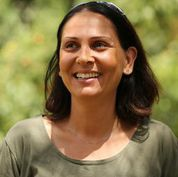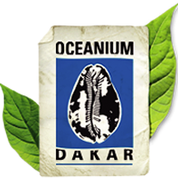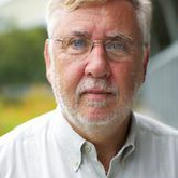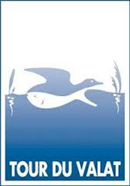Winners of the Ramsar Wetlands Awards 2015
Gland, 16 February 2015
We are delighted to announce the winners of the Ramsar Awards 2015. This year’s entrants came from all corners of the globe and following a rigorous and objective selection procedure a list of nominees was presented to the final selection committee.
The shortlisted candidates included the winners below, as well as nominees from Bangladesh, Zimbabwe, Denmark, Peru, Democratic Republic of Congo, and Myanmar. All presented outstanding applications, with individuals demonstrating a diverse commitment to better management of wetlands including the re-engaging of local populations through environmental education; pollution prevention; regeneration and restoration of previously drained or polluted sites; using innovative technology to improve wetland sites; and most importantly of all, personal endeavour.

AWARD 1: The Ramsar Convention Award for Wetland Wise Use
Presented to: Ms Giselle Hazzan, Manager, Ein Afek Nature Reserve (EANR), Israel
The Acre Valley wetlands were drained in the 1920s and pumping from the aquifer began in 1960 for agricultural use and drinking water. In 2002 Giselle Hazzan became the new Manager of the EANR, the first Arab woman to be a Manager of a nature reserve in Israel. She has re-modelled EANR’s entire water management by initiating actions at different levels with participation from local stakeholders, weir operations and new national legislation. By changing the EANR from stop-gap temporary water management measures to carefully planned long-term projects, Ms Hazzan has saved the EANR ecosystem and made it a vital wetland in a dry country.

AWARD 2: The Ramsar Convention Award for Wetland Innovation
Presented to: Oceanium, Dakar, Senegal
Oceanium is an organisation established to actively protect the marine environment in Senegal since the late 1990s. It has recently undertaken the world’s largest mangrove reforestation and eco-system restoration with and by local people. This is a rare example of large-scale participatory restoration. The project increases resilience to climate change by the rehabilitation and planting of mangroves in marine degraded areas and the development of related sustainable socio-ecological and economical activities, using modern technology. Oceanium has replanted and restored thousands of hectares of mangroves and has successfully restored degraded rice fields in Tobor and returned the land to traditional rice growing. The project involves using solar and wind-powered water pumps; the replanting of mangroves to help in desalinisation and coastline stabilisation; and the development of more ecologically-sustainable rice culture.

AWARD 3: The Ramsar Convention Award for Young Wetlands Champions
Presented to: Fundación Humedales Bogotá, Colombia
The Wetland Foundation Bogota is a non-profit organisation dedicated to saving wetlands around the city of Bogota, and to highlight the constant threats the area is under. The Foundation started in 2011 and has since developed an interactive website which has become the main medium of information on wetlands in Bogota. The Foundation has a network of volunteers who promote wetland conservation through active citizenship. Their participative community approach to management and the organisation of innovative and creative events to raise awareness of the projects - for example, cycling events, an environmental fair, free courses on wetlands, community events to restore the wetlands of Bogota, observing migratory birds - has proven to be hugely successful.
The Ramsar Convention Award for Merit
Presented to:

Professor William Mitsch, Director, Everglades Wetland Research Park, USA
Professor Mitsch is the author of the innovative textbook Wetlands, which has been described as the “wetland bible”. The book has essentially defined the field of wetland science since its first edition in 1986.
Professor Mitsch designed, built and managed from 1992-2012 one of the most productive riverine wetland research laboratories in the world. In 2008 the Olentangy River Wetland Research Park became the 24th Ramsar site in the USA. In 2012 he became a professor and Eminent Scholar at Florida Gulf Coast University and Director of Everglades Wetland Research Park in Florida. The laboratory has already established a reputation as a major destination for visiting wetland scientists from around the world and a place to address large-scale ecosystem restoration in areas such as the Florida Everglades.

Professor Gea Jae Joo, Pusan National University, Republic Of Korea
Professor Gea Jae Joo has worked in wetland conservation and wise use for over 25 years in different fields. He is the author of over 100 publications on wetlands. He was one of the founders and organisers of the Korea-China-Japan “Komodo” wetland events (exchanges and other activities for children focusing on wetlands and Ramsar Sites). Professor Gea Jae Joo is devoted to sharing wetland information and wetland culture in the East-Southeast Asia region and has, in particular been involved in the development of three wetland centres in Korea as well as the establishment of the Ramsar Cultural Centre at Junam and Ramsar Regional Centre-East Asia, of which he is Honorary Director. In this role has been a fervent supporter of both the Youth Model Ramsar Convention and of the use of culture as a tool for wetland education.

Tour du Valat, France (Research Centre for the Conservation of Mediterranean wetlands)
Its mission is to halt and reverse the loss and degradation of Mediterranean wetlands and their natural resources and promote their wise use. The centre develops integrated research and management programmes, which promote exchanges between scientists and wetland users. Transfer of knowledge is a central tool to achieve its mission. A large part of the Tour du Valat estate, located in the Camargue Ramsar Site is classified as a Regional Nature Reserve. The Tour du Valat library is a unique documentation centre in the Mediterranean region, specialised in wetland ecology and visited by many scientists, students and teachers. It was one of the institutions which participated in the creation of the MedWet initiative in 1991, and it has contributed to the implementation of Ramsar principles in the whole Mediterranean basin. This award coincides with the celebration of the Tour du Valat’s 60th anniversary.